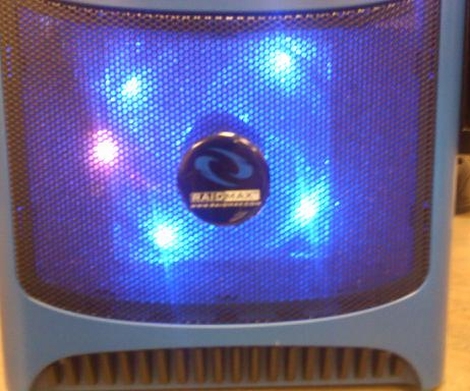
[Taylor] popped a new graphics card into his computer, but before he could settle in for a round of gaming, his card started to overheat. He eventually tracked the problem down to an undersized power supply, but the prospect of cooking his new GPU to death made him think twice about how he was monitoring his system’s health.
To continually keep tabs on his video card’s temperature going forward, he put together a small circuit that will alert him if things start to get too hot. He mounted a small temperature sensor on his graphics card near the GPU, wiring it to an Arduino. The Arduino monitors his video card, lighting an RGB LED blue if conditions are alright. If the temperature rises above 50C, the LED changes to red, signaling a problem.
We’re aware that there are all sorts of software applications that can monitor component temperatures for you, but the appeal of [Taylor’s] system is that it can be easily seen from across the room rather than via the desktop. That said, we think that his system could take advantage of his PC’s case fan lighting for a more visible warning, and it wouldn’t hurt to wire in an auto-shutdown feature in case his computer overheats while he’s away.










